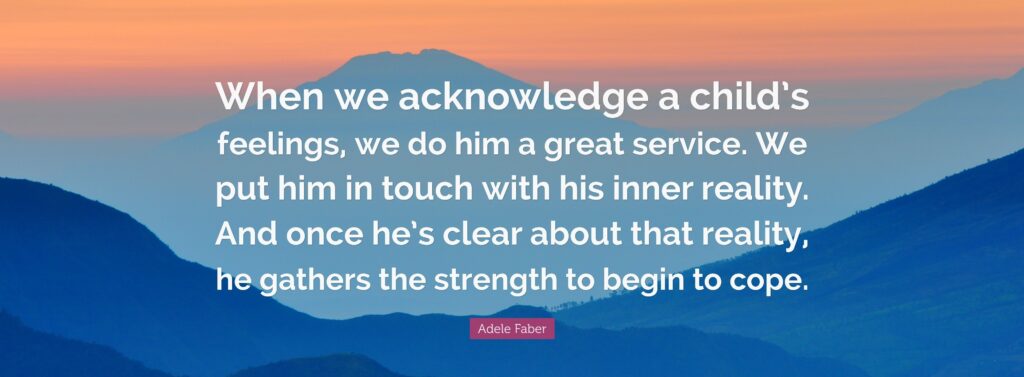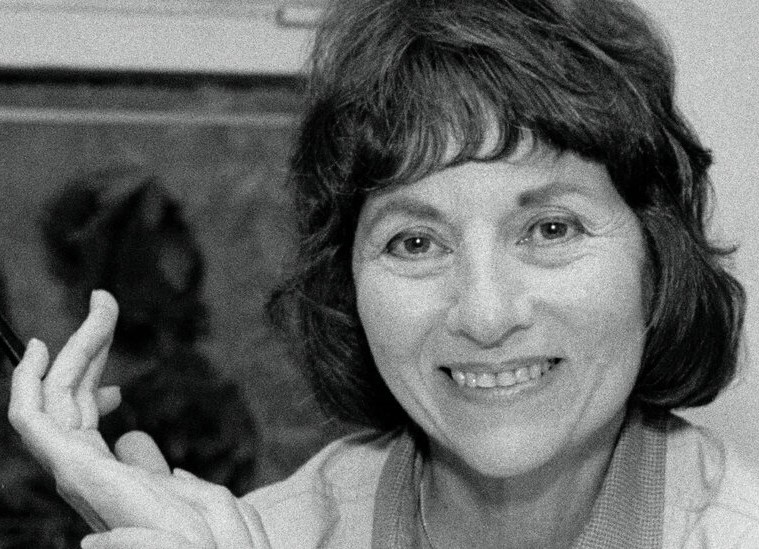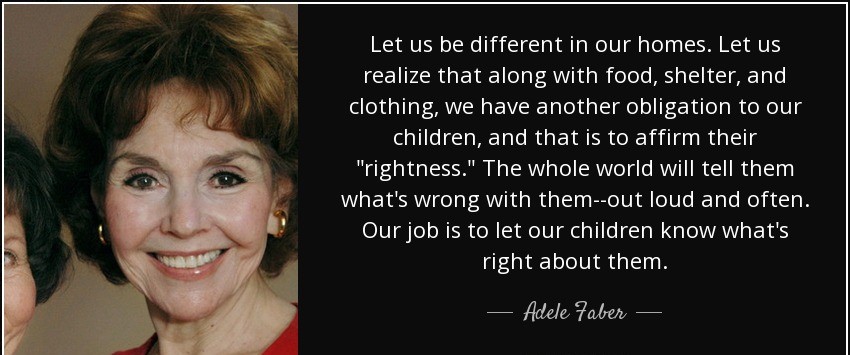

Adele Faber, a former high-school teacher who, with co-author Elaine Mazlish, helped countless parents and educators communicate more effectively with young people, died in April at age 96. Inspired by psychologist Haim Ginott, Faber and Mazlish were best known for their 1980 book, How to Talk So Kids Will Listen and Listen So Kids Will Talk. Here is a selection of her quotes:
Parenting:
- I was a wonderful parent before I had children. I was an expert on why everyone else was having problems with theirs. Then I had three of my own.
- Children don’t need more things, they need more love.
- It’s not helpful when parents respond with more intensity than the child feels.
- The attitude behind our words is as important as the words themselves.
- Sometimes it’s more important to be kind than to be right.
- Children often experience praise of a brother or sister as a put-down of themselves. They automatically translate, ‘Your brother is so considerate’ into ‘Mom thinks I’m not.’ It’s a good idea to save our enthusiastic comments for the ear of the deserving child.
- It’s a bittersweet road we parents travel. We start with total commitment to a small, helpless human being. Over the years we worry, plan, comfort, and try to understand. We give our love, our labor, our knowledge, and our experience – so that one day he or she will have the inner strength and confidence to leave us.
Autonomy:
- Never do for a child what he can do for himself.
- When we give children advice or instant solutions, we deprive them of the experience that comes from wrestling with their own problems.
- Support your child through his or her struggles, rather than rescuing them from every difficulty.
- Our role as parents is to be our children’s emotional coach, not to fight their battles for them.
- Children grow less anxious and develop more self-control when they realize they can manage their feelings and problems themselves.
- The more that children believe they have a say, the more they are willing to take responsibility for their behavior.
Emotions:
- Behind every behavior, there is a feeling. Behind every feeling, there is a need.
- It’s hard for children to change their behavior when their feelings are completely ignored.
- Not till the bad feelings come out can the good ones come in.
- It’s important to make a distinction between allowing feelings and allowing actions. We permit children to express all their feelings. We don’t permit them to hurt each other. Our job is to show them how to express their anger without doing damage.
- Connection is our deepest human need.
Praise and criticism:
- Praise should focus on the child’s effort, not his or her abilities.
- Children become very uncomfortable with praise that evaluates them. They push it away. Sometimes they’ll deliberately misbehave to prove you wrong.
- When a kid is starving, even cotton candy is better than nothing. But why settle for so little? We want to give our children the kind of emotional nourishment that will help them become independent thinkers and doers.
- Instead of focusing on what’s wrong, start by acknowledging what a child has accomplished. Then point out what still needs to be done.
Support:
- A child needs encouragement like a plant needs water.
- Encouragement can be the oxygen of the soul.
- When a person is drowning, it’s not the time to give swimming lessons.
- Children need love, especially when they do not deserve it.
- When our children feel safe around us, they can open their hearts to us.
- To be loved equally is somehow to be loved less. To be loved uniquely – for one’s own special self – is to be loved as much as we need to be loved.


Thank you, Paul. I read Faber’s book and you pulled out some of the best points. Hope all is well at BFS!
Alison